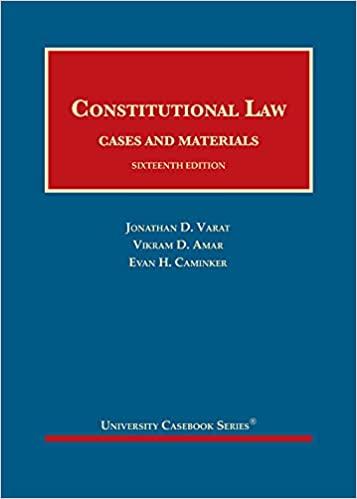Question
A patent is the protection of the idea itself, unlike copyright which protects the expression of an idea. Almost anything can be patented provided that
A patent is the protection of the idea itself, unlike copyright which protects the expression of an idea. Almost anything can be patented provided that is is useful, novel, and non-obvious. A patent term lasts 20 years from the date of filing, during which time the patent holder has exclusive use of the patent during that term. At the end of the term the idea becomes part of the "public domain" or sometimes referred to as "generic". For example, prescription medications are one of the most commonly patented items in order to give the inventor exclusive rights and a limited monopoly on that product. This is essentially as a reward for inventing it ad an incentive for companies and individuals to innovate. When a prescription medication loses its patent, it becomes generic and anyone can manufacture it using the exact specifications of the inventor, usually resulting in substantially lower prices.
Google uses several algorithms (math equations) to perform their internet searches. The most famous and longest in use algorithm is known as the "PageRank" algorithm, essentially determining the importance of items on the internet based on search terms. The algorithm is named after Google co-founder Larry Page. The algorithm was created while Page was a PhD student at Stanford University and as such, the patent holder is Stanford, not Google. Stanford gives Google a "license" to use the algorithm (presumably for an obscene amount of money).
The below case describes the "non-obvious" requirement for a valid patent. What are the facts of the case? What ruling does the Court make? What does this ruling mean for medical technology such as DNA testing and gene therapy?
https://www.supremecourt.gov/opinions/12pdf/12-398_1b7d.pdf
Step by Step Solution
There are 3 Steps involved in it
Step: 1

Get Instant Access to Expert-Tailored Solutions
See step-by-step solutions with expert insights and AI powered tools for academic success
Step: 2

Step: 3

Ace Your Homework with AI
Get the answers you need in no time with our AI-driven, step-by-step assistance
Get Started


